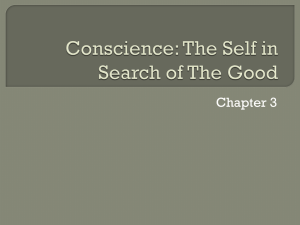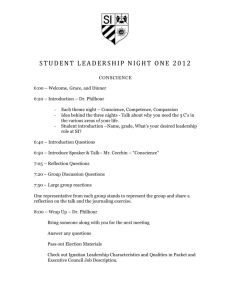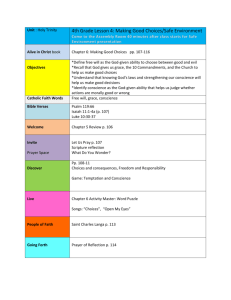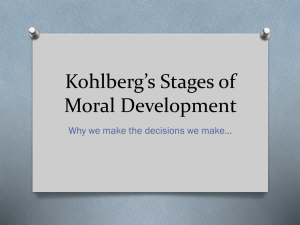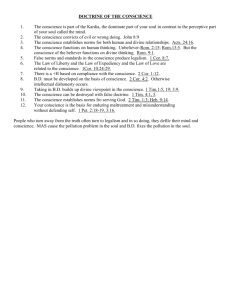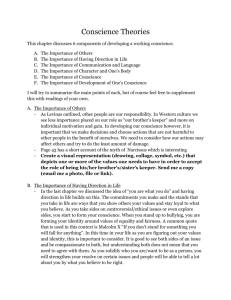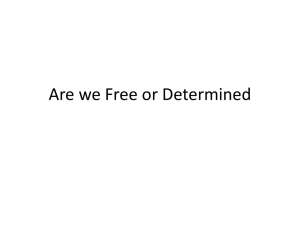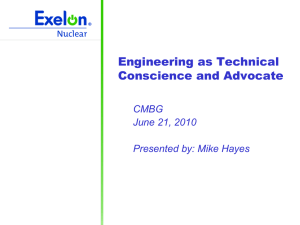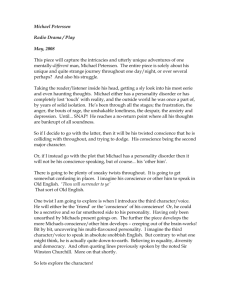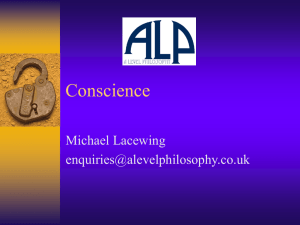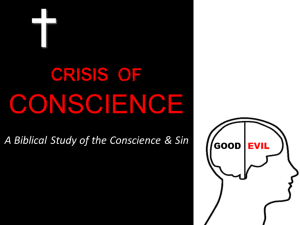A Catholic Christian Anthropology
advertisement
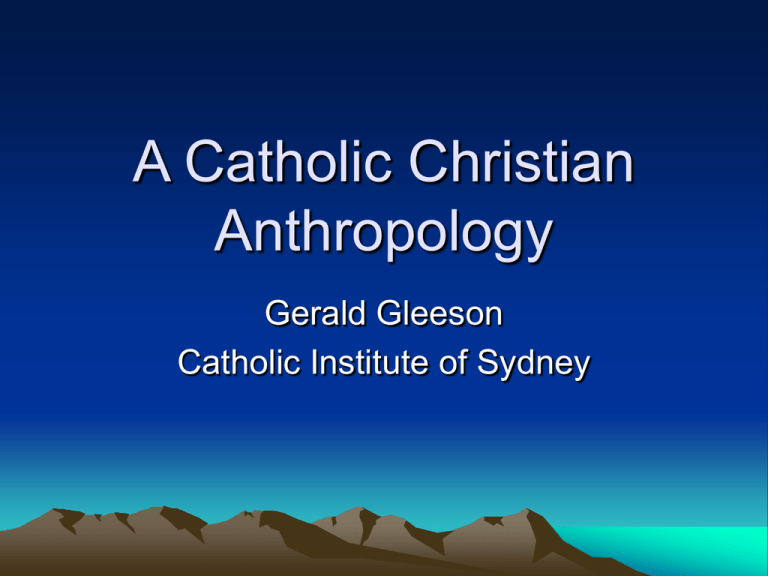
A Catholic Christian Anthropology Gerald Gleeson Catholic Institute of Sydney Outline • Some current ethical debates • The dignity of the human person • Contrast between secular and Catholic worldviews • The polarities of human existence • Conscience and moral development. Introduction • Some current difficult ethical issues – Use of reproductive technologies – Response to pre-natal testing – Divorce, re-marriage and reception of the Eucharist • The vision of Guadium et Spes – Dignity of the human person – Is the Church an “expert in humanity”? Articulating a Catholic worldview • Who are we? – [ Who am I? ] – [ What are we? Is there a human nature? ] • Where are we? • What’s the problem? – What’s the meaning of suffering? • What’s the solution? • What time is it? From N T Wright, Jesus and the Victory of God. Who are we? • • • • Australians, New Zealanders, ANZACS Descendants of …. Children of… – Husband of… wife of… daughter of… • People of God • Brothers and sisters in Christ These are all relational answers Where are we? • On a medium sized planet…of a sun in the Milky Way galaxy… • In a land of opportunity.. On track for my career … • At work…. in a global market place.. • In God’s good creation.. • In a vale of tears… • In exile… • On a journey… What’s the problem? • • • • • • • Not enough autonomy… Science is in its infancy… Global injustices… Imperfect genes… “Original sin”… Wounded human nature… We cannot ‘save’ ourselves… What is the meaning of suffering? • • • • • • Just bad luck… Evidence there is no God… Punishment for sin… Symptom of the need for redemption.. An opportunity for “soul making”… A share in the sufferings of Christ… What’s the solution? • Scientific progress… • A new world order… • The coming of the Kingdom of God… • The death and resurrection of Jesus… • The gift of salvation… • Life in the Holy Spirit… How can the gospel be heard as good news if we don’t recognise our need for it? What time is it? • • • • • • “Early days yet…” “5 minutes to midnight…” “the last days”…. The day of the Lord is near… The time for decision… The sacrament of the present moment… The Polarities of Human existence We are: • Persons with a created nature • Spiritual and material • Individual and social • Free and responsible • Male or female FREE MATERIAL The Polarities of Human existence INDIVIDUAL Male or Female NATURE CREATED SPIRITUAL SOCIAL RESPONSIBLE FREEDOM SIN Some Polarities of Christian Existence SERVICE COMMUNAL PERSONAL GRACE PRAYER COMMITMENT Conscience and moral development • The current debate over freedom of conscience as a Catholic • The fundamental issue: are there some actions that are always wrong? • The rights and dignity of an erroneous conscience • Moral growth and the law of gradualism Do Catholics have freedom of conscience? • What is conscience? – An ability to judge what is right… – The final judgment one makes… – Feelings of obligation, guilt, remorse… – Place of personal responsibility… • A good conscience is formed by the truth – Is open to all sources of truth – Is exercised with a tradition and community – Tries to make the church’s teachings one’s own The fundamental issue • In reaching a conscience judgment I draw upon all my background moral beliefs, including Church teachings, about the right and wrong ways to act, to think and to feel • Do I believe that bad actions are generally wrong, or do I believe that some bad actions are always wrong? – That a good end does not justify a bad means Moral beliefs Final judgment: “do this” Two models of “creative conscience” X is always wrong Final judgment: “Don’t do X, but do this” Erroneous conscience • We are ignorant erring in conscience, and often culpably so (Catechism) • We are often ignorant and erring in conscience, but inculpably so (Veritatis Splendor 62; GS 16) • the dignity of conscience derives from what someone “subjectively considers to be true” (Veritatis Splendor, 63) • “Obedience, even to an erring conscience, is the way to attain light…” (Cardinal Newman) The gradualism of moral growth • “It is only little by little that the human being is able to order and integrate his many tendencies harmoniously in this virtue of marital chastity… Conscience demands to be respected, educated and formed in an atmosphere of confidence and not of anguish.” Paul VI, Address to the Teams of Our Lady 1970 The repentant conscience • “The tax collector might possibly have had some justifications for his sins to diminish his responsibility… But his prayer dwells on his own unworthiness…” (VS, 104) • “We have forgotten how to stand in our own weakness temporarily and acknowledge our sins, or rather to celebrate God’s mercy when we admit our sins before Him”. • Andre Louf, Tuning into Grace

